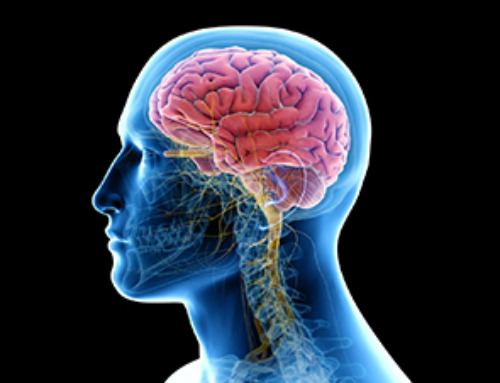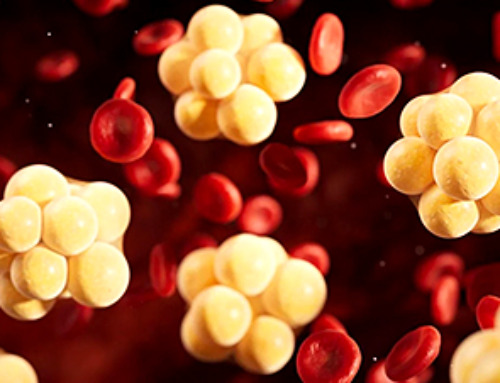A new study indicates that 3D retinal scans could revolutionize the early detection and monitoring of kidney disease, offering a non-invasive and efficient diagnostic tool.
3D eye scans can reveal vital clues about kidney health that could help to track the progression of disease, research suggests.
The advance could revolutionize the monitoring of kidney disease, which often progresses without symptoms in the early stages.
Potential of 3D Eye Scans
Experts say the technology has the potential to support early diagnosis as current screening tests cannot detect the condition until half of the kidney function has been lost.
Researchers used highly magnified images to detect changes to the retina – the layer of tissue at the back of the eye that senses light and sends signals to the brain. They found that the images offer a quick, non-invasive way to monitor kidney health.
The eye is the only part of the body where it is possible to view a key process called microvascular circulation – and this flow of blood through the body's tiniest vessels is often affected in kidney disease.
Research Findings
Researchers at the University of Edinburgh investigated whether 3D images of the retina, taken using a technology called optical coherence tomography (OCT), could be used to identify and accurately predict the progression of kidney disease.
OCT scanners – used in most high street opticians – use light waves to create a cross-sectional picture of the retina, displaying each individual layer, within a few minutes.
The team looked at OCT images from 204 patients at different stages of kidney disease, including transplant patients, alongside 86 healthy volunteers.
They found that patients with chronic kidney disease had thinner retinas compared with healthy volunteers. The study also showed that thinning of the retina progressed as kidney function declined.
These changes were reversed when kidney function was restored following a successful transplant. Patients with the most severe form of the disease, who received a kidney transplant, experienced rapid thickening of their retinas after surgery.
Wider Implications
More people than ever are at risk of kidney disease, which is often caused by other conditions that put a strain on the kidneys, including diabetes, high blood pressure and obesity.
With further research, regular eye checks could one-day aid early detection and monitoring to prevent the disease from progressing. It could also allow patients to make lifestyle changes that reduce the risk of health complications, experts say.
The technology, supported by Heidelberg Engineering's imaging platform, could also aid the development of new drugs, the research team says.
It could do so by measuring changes in the retina that indicate whether – and in what way – the kidney responds to potential new treatments.
Future Research and Impact
The researchers say further studies – including longer-term clinical trials in larger groups of patients – are needed before the technology can be routinely used.
An estimated 7.2 million people in the UK live with chronic kidney disease – more than 10% of the population. It costs the NHS around £7 billion each year.
The study will be published today (December 5) in the journal Nature Communications. It was funded by Kidney Research UK, and supported by Edinburgh Innovations, the University's commercialization service.
Dr. Neeraj (Bean) Dhaun, Professor of Nephrology at the University of Edinburgh's Centre for Cardiovascular Science, said: "We hope that this research, which shows that the eye is a useful window into the kidney, will help identify more people with early kidney disease – providing an opportunity to start treatments before it progresses.
"It also offers potential for new clinical trials and the development of drug treatments for a chronic disease that, so far, has proved extremely difficult to treat."
Dr. Aisling McMahon, executive director of research and policy at Kidney Research UK, said: "Kidney patients often face invasive procedures to monitor their kidney health, often on top of receiving grueling treatments like dialysis.
"This fantastic research shows the potential for a far kinder way of monitoring kidney health. We are continuing to support the team as they investigate whether their approach could also be used to diagnose and intervene in kidney disease earlier."
Reference: "Choroidal & retinal thinning in chronic kidney disease are modifiable with treatment & independently associate with eGFR decline" 5 December 2023, Nature Communications.
DOI: 10.1038/s41467-023-43125-1
News
Smaller Than a Grain of Salt: Engineers Create the World’s Tiniest Wireless Brain Implant
A salt-grain-sized neural implant can record and transmit brain activity wirelessly for extended periods. Researchers at Cornell University, working with collaborators, have created an extremely small neural implant that can sit on a grain of [...]
Scientists Develop a New Way To See Inside the Human Body Using 3D Color Imaging
A newly developed imaging method blends ultrasound and photoacoustics to capture both tissue structure and blood-vessel function in 3D. By blending two powerful imaging methods, researchers from Caltech and USC have developed a new way to [...]
Brain waves could help paralyzed patients move again
People with spinal cord injuries often lose the ability to move their arms or legs. In many cases, the nerves in the limbs remain healthy, and the brain continues to function normally. The loss of [...]
Scientists Discover a New “Cleanup Hub” Inside the Human Brain
A newly identified lymphatic drainage pathway along the middle meningeal artery reveals how the human brain clears waste. How does the brain clear away waste? This task is handled by the brain’s lymphatic drainage [...]
New Drug Slashes Dangerous Blood Fats by Nearly 40% in First Human Trial
Scientists have found a way to fine-tune a central fat-control pathway in the liver, reducing harmful blood triglycerides while preserving beneficial cholesterol functions. When we eat, the body turns surplus calories into molecules called [...]
A Simple Brain Scan May Help Restore Movement After Paralysis
A brain cap and smart algorithms may one day help paralyzed patients turn thought into movement—no surgery required. People with spinal cord injuries often experience partial or complete loss of movement in their arms [...]
Plant Discovery Could Transform How Medicines Are Made
Scientists have uncovered an unexpected way plants make powerful chemicals, revealing hidden biological connections that could transform how medicines are discovered and produced. Plants produce protective chemicals called alkaloids as part of their natural [...]
Scientists Develop IV Therapy That Repairs the Brain After Stroke
New nanomaterial passes the blood-brain barrier to reduce damaging inflammation after the most common form of stroke. When someone experiences a stroke, doctors must quickly restore blood flow to the brain to prevent death. [...]
Analyzing Darwin’s specimens without opening 200-year-old jars
Scientists have successfully analyzed Charles Darwin's original specimens from his HMS Beagle voyage (1831 to 1836) to the Galapagos Islands. Remarkably, the specimens have been analyzed without opening their 200-year-old preservation jars. Examining 46 [...]
Scientists discover natural ‘brake’ that could stop harmful inflammation
Researchers at University College London (UCL) have uncovered a key mechanism that helps the body switch off inflammation—a breakthrough that could lead to new treatments for chronic diseases affecting millions worldwide. Inflammation is the [...]
A Forgotten Molecule Could Revive Failing Antifungal Drugs and Save Millions of Lives
Scientists have uncovered a way to make existing antifungal drugs work again against deadly, drug-resistant fungi. Fungal infections claim millions of lives worldwide each year, and current medical treatments are failing to keep pace. [...]
Scientists Trap Thyme’s Healing Power in Tiny Capsules
A new micro-encapsulation breakthrough could turn thyme’s powerful health benefits into safer, smarter nanodoses. Thyme extract is often praised for its wide range of health benefits, giving it a reputation as a natural medicinal [...]
Scientists Develop Spray-On Powder That Instantly Seals Life-Threatening Wounds
KAIST scientists have created a fast-acting, stable powder hemostat that stops bleeding in one second and could significantly improve survival in combat and emergency medicine. Severe blood loss remains the primary cause of death from [...]
Oceans Are Struggling To Absorb Carbon As Microplastics Flood Their Waters
New research points to an unexpected way plastic pollution may be influencing Earth’s climate system. A recent study suggests that microscopic plastic pollution is reducing the ocean’s capacity to take in carbon dioxide, a [...]
Molecular Manufacturing: The Future of Nanomedicine – New book from Frank Boehm
This book explores the revolutionary potential of atomically precise manufacturing technologies to transform global healthcare, as well as practically every other sector across society. This forward-thinking volume examines how envisaged Factory@Home systems might enable the cost-effective [...]
New Book! NanoMedical Brain/Cloud Interface – Explorations and Implications
New book from Frank Boehm, NanoappsMedical Inc Founder: This book explores the future hypothetical possibility that the cerebral cortex of the human brain might be seamlessly, safely, and securely connected with the Cloud via [...]





















